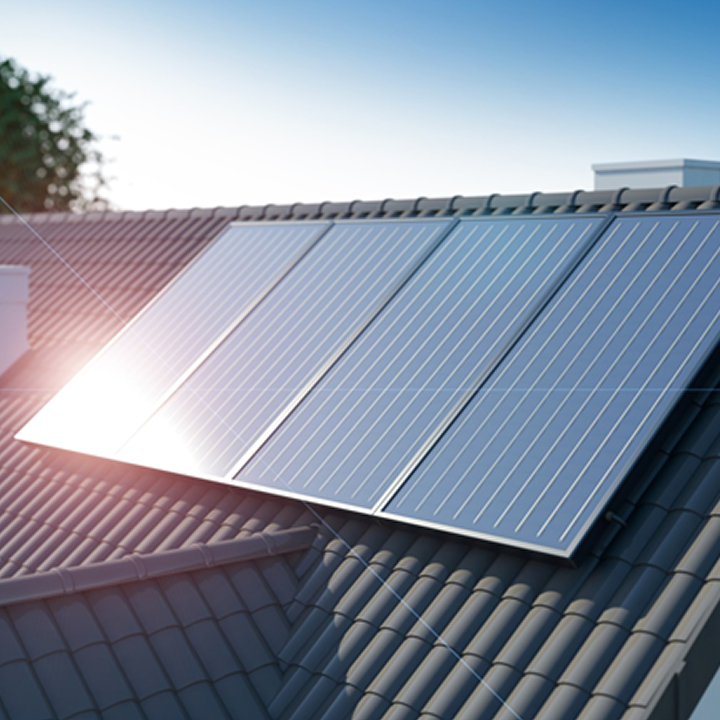How much do solar panels cost? Solar is a good way to generate your own electricity, save money and be part of a greener society. But you may be wondering how much the investment will cost and whether it’s worth your while.
Read on for our quick cost of a solar guide.
Comparing Options
You’ll need to do some research in order to accurately compare the costs associated with different solar systems. Generally, the cost of solar panels depends on the quality, size, and efficiency of the system.
The cost of a larger, more efficient system may be higher, but the system could pay for itself over time by reducing energy costs. Additionally, the cost of installation labor, permits, and other related expenses are also factors to consider.
If you’re looking for an affordable option, research some of the solar leases and financing plans available today. These can often provide a more accessible option for those on a limited budget.
Click through this page to know more about the cost of solar.
Determining Financial Incentives
The cost of solar power is an important factor to consider when determining financial incentives. Solar energy is an excellent form of renewable energy and with the right knowledge, it can be an affordable and reliable source of power.
There are many tax credits and financial incentives available to solar users that can help make the overall cost of solar energy more affordable. Generally speaking, the upfront cost of installing a solar energy system will depend on the size of the system, the types of components used, and the complexity of the system’s design.
The best way to reduce the cost of solar energy is to maximize the amount of energy generated for the installed cost. There are plenty of resources available online to help people determine available incentives and calculate the overall costs of their solar energy system.
A Smart Investment
Solar panels provide long-term financial savings compared to traditional energy sources, as well as a variety of environmental, health, and economic benefits. When considering a solar panel installation, it’s important to understand the associated costs.
These costs can vary depending on the size, location, and configuration of the system, but typically include the cost of the solar panels, the installation process, refining and compliance fees, maintenance, and special financing options.
A professional in the solar industry can help you determine the cost of solar. They can provide an estimate of what size system your property requires, take into account local weather patterns, and offer efficient installation techniques and prices.
Exploring Payment and Financing Options
Exploring payment and financing options is a major factor when determining the cost of solar. It is important to research the solar companies in your area and compare their prices, warranties, and payment plans.
Homeowners can choose to buy the solar system outright or lease the equipment, with a payment plan spread out over time. They can also use financing or loans, as well as various government rebates and credits.
Before making any purchasing decisions, it is important to do research to determine which financing option works best for you.
Analyzing Your Return on Investment
A quick guide to the cost of solar can help you to analyze your return on investment. The levelised cost of energy (LCOE) is the cost of generating energy from any source including solar and is used to analyze the long-term costs of a solar system.
The LCOE is composed of upfront costs of installation, ongoing costs to run and maintain the system, the lifespan of the system, and the incentives and subsidies available to help cover costs.
The analysis should also include other factors such as the cost of electricity from the local utility and the amount of usage.
Considering all the factors and their potential returns, you can calculate whether you can achieve a positive return on investment from solar and make the most informed decision for your home or business.
Calculate Your Solar System Cost
Homeowners need to calculate their solar system cost, which involves considering all of the associated costs, such as the:
- purchase of solar panels
- installation
- maintenance
- electrical wiring
- any applicable permits
Once the solar panel system cost is determined, homeowners will have a good idea of how much they need to invest to get a system installed on their property.
It is important to take into account the savings on electricity bills that solar power offers in addition to the potential increases in home values, so often the cost of solar is well worth it in the long run.
Factor in Potential Cost Savings
Contrary to popular belief, the cost of solar energy is actually quite affordable for the average homeowner, and there are several potential cost savings that should be factored in when considering the installation of a solar energy system.
Depending on the state, there are typically incentives offered by the government, such as tax credits and other rebate programs, that can significantly reduce the total cost.
Additionally, power purchase agreements (PPAs) are becoming increasingly popular and can be used to offset any initial installation costs.
Furthermore, solar energy has a natural seasonal flow to it, with potential savings in the summer months when energy use is at its highest.
As such, those interested in solar energy must determine the level of cost savings that can be had in their particular area, to maximize the return on their solar energy investment.
Learn About the Cost of Solar Today
The cost of solar power varies depending on the size of the installation and other factors, but it can be accessible and affordable.
Solar energy is a great investment and it pays for itself in the long run. If you are interested in finding out more about the cost of solar, contact a local solar energy expert today!

